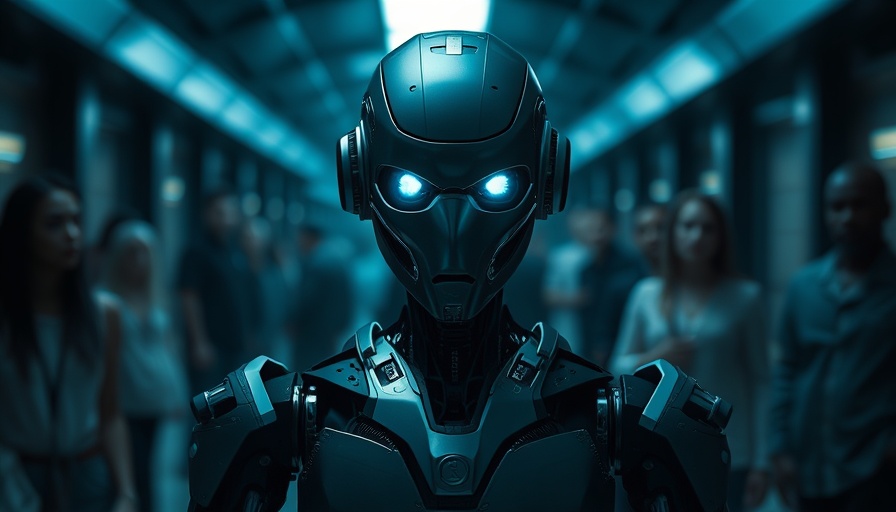
Understanding the New Era of Physical AI
As artificial intelligence evolves, we find ourselves at the intersection of technology and reality, prompting an essential question: What does it truly mean to be 'real' in a world where physical AI is becoming increasingly prevalent? This phenomenon, where machines not only imitate human behavior but also integrate into the physical aspects of our lives, challenges our traditional understanding of existence, agency, and authenticity.
The Cultural Impact of AI: Defining Real versus Artificial
Physical AI is paving the way for technology to become an integral part of our daily existence, from autonomous robots delivering packages to sophisticated chatbots that can hold human-like conversations. This evolution raises ethical concerns regarding our societal interactions and the definition of cultural influence. Are these AI systems enhancing our lives, or are they eroding the essence of what makes us human?
AI and Society: Analyzing Ethical Implications
As AI becomes embedded in governance and social structures, its implications on jobs, education, and inequality must not be overlooked. The advent of AI-generated outputs introduces significant changes to the workforce. Many jobs face automation, leading to potential displacement of workers and heightening economic disparities. Policymakers and society must grapple with how to leverage AI for social good while ensuring equitable access and protecting human rights.
Future Predictions: The Role of AI in Shaping Society
Looking forward, we can anticipate a society where AI contributes to transformative changes in various sectors. However, the path forward must be paved with legislative and ethical frameworks that govern AI's development and deployment. How we define what is real in the age of AI will significantly influence cultural attitudes, educational paradigms, and social policies.
AI's Societal Challenges: Navigating a New Reality
The introduction of physical AI creates complex challenges that require thoughtful discourse. From AI in politics to social justice issues, the intersectionality of these developments is vast. There are legitimate fears about surveillance, data privacy, and algorithmic bias that threaten to stifle equality in our already fragmented social landscape. As advocates for responsible innovation, we must confront these challenges head-on, ensuring AI becomes a tool for liberation rather than oppression.
In a world increasingly governed by AI, remaining informed and engaged in the conversations surrounding technology's societal impacts is paramount. By doing so, we can help shape a future where technology aligns with our shared values and aspirations.
 Add Row
Add Row  Add
Add 




 Add Row
Add Row  Add
Add 



Write A Comment